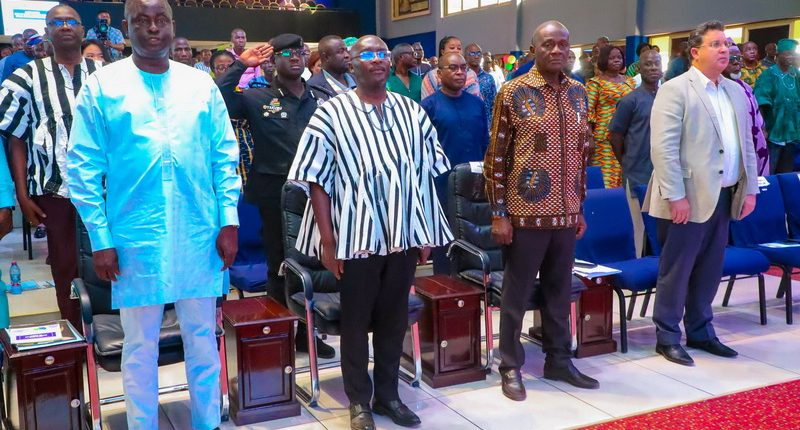- The Vice President, Dr. Mahamudu Bawumia, has launched a multi-country development project dubbed, the Gulf of Guinea Northern Regions Social Cohesion (SOCO) Project in Bolgatanga.
The SOCO Project is a $450 million multi-country Credit Facility Project secured by the Governments of Ghana, Cote d’ Ivoire, Togo and Benin from the World Bank, and the project is aimed at improving facilities and security in the northern sectors and border towns of the four West African countries, in the face of emerging extremism in the West African sub-region.
Launching the project in Bolgatanga on Friday, November 25, 2022, Vice President Bawumia revealed that out of the total amount of $450m facility, the Government of Ghana has secured US $150Million to implement the Project in forty-eight (48) Metropolitan, Municipal and District Assemblies (MMDAs) in six regions of the country, distributed as follows: Northern – eight (8) District Assemblies, North East – six (6) District Assemblies, Upper East – all the fifteen (15) District Assemblies, Upper West – all the eleven (11) District Assemblies, Savannah – four (4) District Assemblies and Oti – four (4) District Assemblies.
Dr. Bawumia described the project as “a very important and timely intervention aimed at addressing some key emerging and recurring challenges in the northern part of Ghana.”
“The Project has been conceived and designed to address the effects of the spillover of conflicts and extremism from the Sahel Region; reduce vulnerability because of exposure to the impacts of climate change; strengthen local institutions; improve economic opportunities and build public trust,” he added.
For the Ghana project, the Vice President further explained that the project will focus mostly on border communities in these regions, where the citizenry especially women and youth are exposed and susceptible to the threats of terrorism from the Sahel Region.
“This is very significant as countries all over the world are pursuing strategies to address these challenges in view of the anticipated worsening of the situation if the necessary interventions are not promptly instituted,” said the Vice President.
“The project as conceptualized takes cognizance of regional perspectives and the impact of the issues that are common to the four countries, whilst enabling country-led actions that respond to local needs. It also leverages experience sharing on prevention of the spillover effects from the Sahel, fragilities, climate-related risks in the four (4) participating Gulf of Guinea countries, as well as, conflict prevention by the affected countries,” he added.
The project will also prioritize the needs of communities and strengthen local institutions to give the citizenry, especially the vulnerable, a voice to take part, influence and play a vital role in prioritizing local development investments, as well as, promote social cohesion and build trust in their communities.
For almost a decade, the living conditions of over sixteen million people living in the northern parts of Benin, Côte d’Ivoire, Ghana, and Togo have been threatened by the spread of conflict from the Sahel, which has led to increased vulnerability to the impact of climate change.





